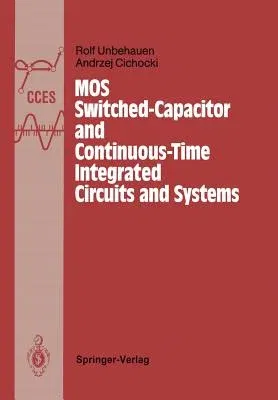Rolf Unbehauen
(Author)Mos Switched-Capacitor and Continuous-Time Integrated Circuits and Systems: Analysis and Design (Softcover Reprint of the Original 1st 1989)Paperback - Softcover Reprint of the Original 1st 1989, 5 December 2011

Qty
1
Turbo
Ships in 2 - 3 days
In Stock
Free Delivery
Cash on Delivery
15 Days
Free Returns
Secure Checkout
Part of Series
Communications and Control Engineering
Part of Series
Communications and Control Engineering (Paperback)
Print Length
631 pages
Language
English
Publisher
Springer
Date Published
5 Dec 2011
ISBN-10
3642836798
ISBN-13
9783642836794
Description
Product Details
Authors:
Book Edition:
Softcover Reprint of the Original 1st 1989
Book Format:
Paperback
Country of Origin:
NL
Date Published:
5 December 2011
Dimensions:
24.41 x
16.99 x
3.33 cm
ISBN-10:
3642836798
ISBN-13:
9783642836794
Language:
English
Location:
Berlin, Heidelberg
Pages:
631
Publisher:
Weight:
1020.58 gm

